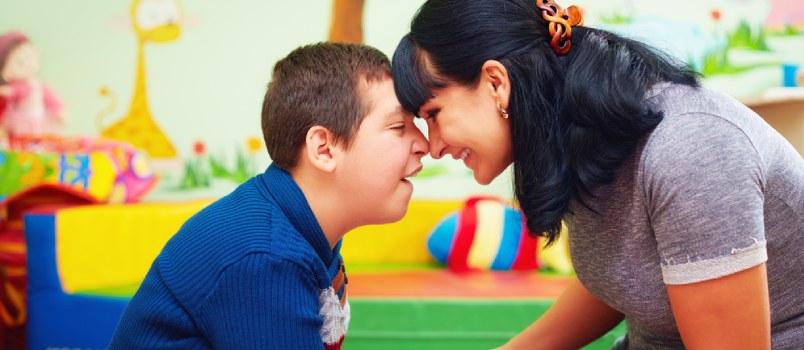
Caring for and raising a child with cerebral palsy affects the whole family and especially the parents who become the main caregivers.
No advice will fall 100 percent into place for what it’s like raising children with cerebral palsy since the journey comes with lots of unique challenges and responsibilities.
Cerebral palsy affects each child differently, hence, no family has the same experience in taking care of their child. Hence finding the right cerebral palsy support for parents and caregivers can be difficult at times but not impossible.
Raising a child with cerebral palsy needs time, patience, empathy, effort and a lot of grace. Whether your child’s case is mild or severe, here are 6 tips for parents with children who have cerebral palsy to bring out the best in you, your family and your child.
1. Stay organized
Staying organized is one way to reduce the daily stress of taking care of your child. Organization means being ready for the next occurrence.
Not only does being orderly and organized makes life more comfortable and easy for the child and parent, but it sets a standard for any other caregivers who may be involved in assisting your family.
Calendars and lists are essential tools in staying organized. Other things that you should have listed down include;
- Doctor’s phone numbers, direct and office lines.
- Medical reports, lab test and imaging, medications
- Appointments dates and time.
- School contact information for the teacher and the office.
- Emergency contacts in case you are not available
- Caregivers and babysitters’ phone numbers.
2. Learning about Cerebral Palsy
Parents need to get informed about cerebral palsy. Although the health care providers from specialists to pediatricians to therapists take care of your child, keeping a tab on your child’s condition and care is vital.
Be informed and involved in healthcare decisions; know the underlying causes and the effects it has on your child’s daily activities.
Play a big part in healthcare related decisions, keep a tab of the medicine that works well, and ones with setbacks, including the side effects, and the therapies that work well.
Do research in medical journal, health blogs, attend meetings with other parents and check out the various resources available to learn ways to protect and cater to your child.
Understating the whys and hows of your child’s condition makes it easier for the parent to imagine and plan on ways to guide and care for their child. Remember being part of the doctor’s team helps you have more insight on ways to cater to your child.
3. Help Your Child to Become Active

Your child may be on a different level when it comes to sports with his peers, but helping him become active to his ability gives him confidence. Help him move around, walk, or even play by teaching him new skills.
Being proactive and learning new skills help in strengthening his muscles, leading to fewer muscle spasms. Additionally, you can become a home therapist by helping your child build balance, stretch his muscles, and reduce pain.
4. Cultivate Your Child’s Interests
If your child shows interest in something, put effort to develop it. It’s a big opportunity to expand their social skills and explore their imagination. The good thing about your child’s interests is the ability to carry them into adulthood hence giving them a lifetime of opportunities.
Find classes, troupes, and even clubs that provide your child with the opportunity to grow their interests. Such interest may lead to mastery and a sense of accomplishment.
Having confidence in your child’s ability to develop their interests helps them in achieving self-worth, self-identity, and self-image.
5. Take care of yourself
Yes, take care of yourself. You cannot pour from an empty cup. Parents get wrapped up in taking care of their children, and they forgot about themselves leading to a mental, financial, and physical meltdown. As a cerebral palsy caretaker you need to:
Eat healthily: Eating healthy makes you a better caregiver; it gives you more energized and less stressed. Eating healthy keeps you healthy and in the right physical condition to take care of your child.
Get enough rest: Lack of enough rest affects your emotional well-being and also your relationships. Staying well-rested helps you to handle stress better.
Embrace relaxation: Parents need space and time to unwind and get back into the right frame of mind.
Do whatever you need to do: Hire a babysitter, swap time with another parent and then go out get your hair done, have a spa day, walk in nature, meet a friend for coffee or a drink, read a book or any other hobby or activity that refills your cup. Relaxing makes you a more effective caregiver.
Ask for help: Asking others to help shoulder the burden and responsibilities assists you to regain back the energy needed to perform your daily caretaking duties. Remember, asking for help is not a sign of weakness.
6. Share and talk to other parents
Being open about your child’s condition and capabilities forms a basis for friendship. Taking time to creatively educate and learn from other parents and children with cerebral palsy reaps many rewards.
Encourage your child to open up and share their journey. Joining hands with other parents may help lift your spirits when the going is tough.
Giving your child the best regardless of the condition is every parent’s dream. The above advice for parents of kids with cerebral palsy will enable you to effectively take care of your child, yourself and the entire family.
The post 6 Tips for Parenting a Child With Cerebral Palsy appeared first on Marriage.com Blog.
from Marriage.com Blog https://ift.tt/2ADlg7A
No comments:
Post a Comment